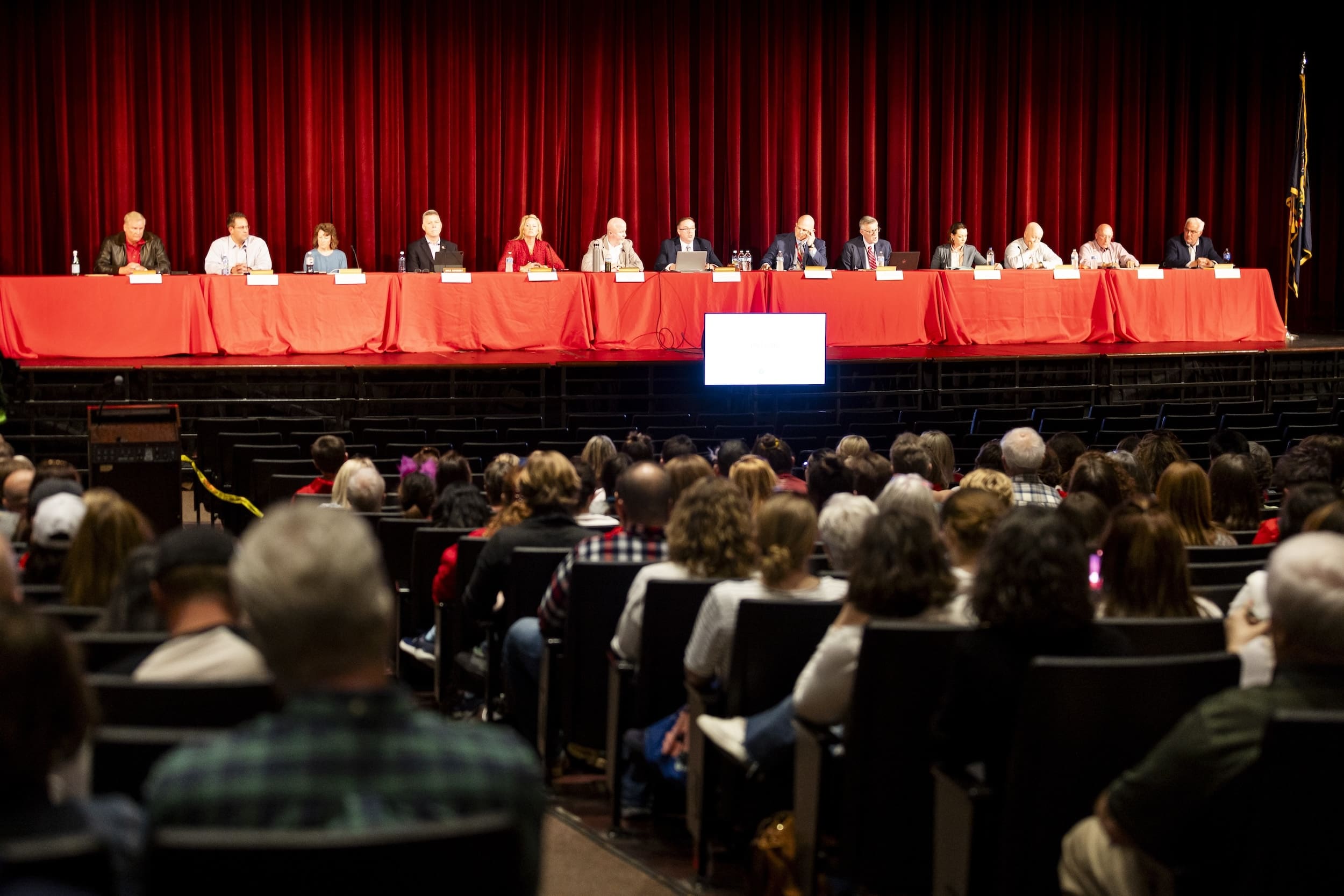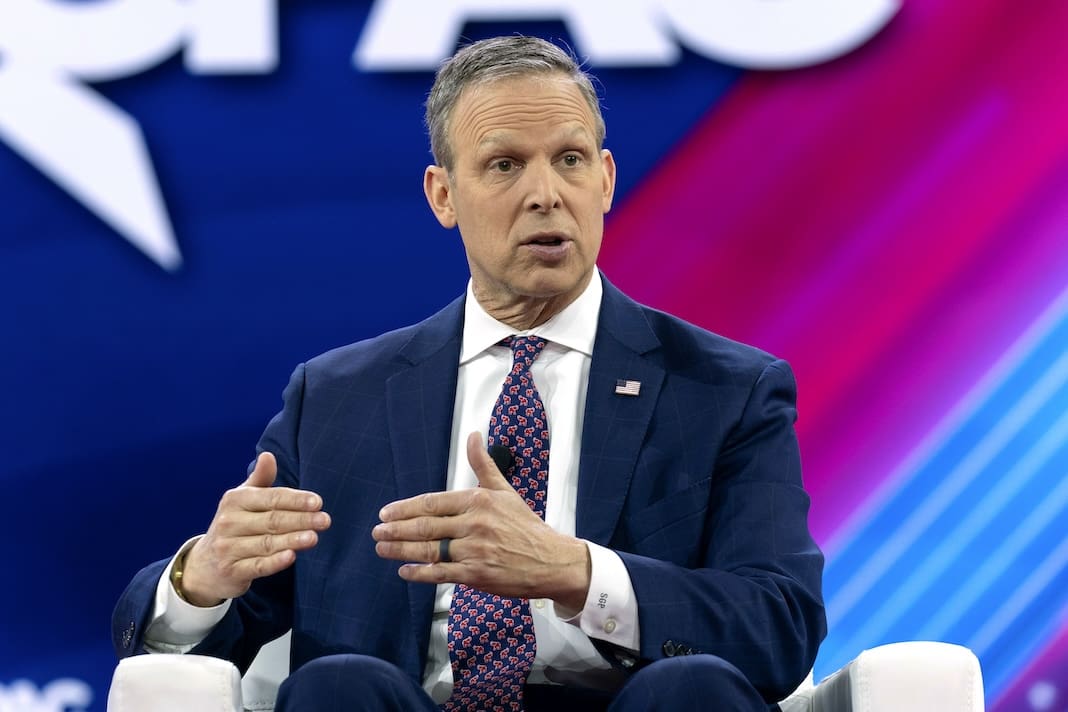Black lung patients struggle to access benefits. Advocates say that needs to change.
Democratic lawmakers have introduced bills that would help miners with black lung disease, but Republicans are not supporting the legislation.

Gary Hairston was an underground coal miner for nearly three decades.
At 48 years old, he found himself struggling to breathe. After seeing a doctor, Hairston discovered he had coal worker’s pneumoconiosis, commonly referred to as black lung disease. A progressive and so far incurable condition caused by inhaling coal dust, the disease creates scarring in the lungs and makes it difficult for an individual to breathe.
Now, after years of living with a disease that leaves Hairston unable to work or to play with his grandchildren, the West Virginia resident is the president of the National Black Lung Association. On Wednesday afternoon, Hairston joined fellow advocates, Democratic U.S. Sen. Bob Casey of Pennsylvania, and Democratic U.S. Rep. Morgan McGarvey of Kentucky to urge Congress to pass legislation benefiting coal miners, former miners, and their families.
Hairston emphasized during a virtual press conference that so far it is solely Democratic legislators who have been pushing for Congress to pass the Black Lung Benefits Improvement Act and the Relief for Survivors of Miners Act of 2023, both of which Casey is co-sponsoring.
“We do need Republicans to try to help out,” Hairston said. “Seems like when we try to get them to help, they do when they talking on TV, but then when it comes really down to it, they don’t.”
The Black Lung Benefits Improvement Act would decrease the amount of red tape that black lung patients often face when trying to access benefits from the federal Black Lung Program, including lengthy processing times. It would also restore cost-of-living increases for individuals receiving black lung benefits, which are overseen by the U.S. Department of Labor and paid for by coal mining companies. The Relief for Survivors of Miners Act would make it easier for miners’ family members to claim financial benefits after a miner has died from black lung disease.
Casey noted that while the legislation has landed significant support among Democrats, Republicans have not backed the bills.
“An issue like this, an issue that helps workers or retirees, falls down on partisan lines; we can’t allow that to happen,” said Casey, who represents a state where there are 4,300 coal miners and more than 40 active underground coal mines.
During the press conference, which was organized by the environmental advocacy group Appalachian Voices, participants criticized Republican U.S. Rep. Scott Perry of Pennsylvania for authoring a funding bill amendment that would defund implementation of a proposed Department of Labor limit on the amount of deadly silica dust to which miners can be exposed. Breathing in silica dust, which is produced during mining, can lead to black lung disease and other health problems, according to the Mine Safety and Health Agency.
“This is extremely disappointing,” Quenton King, a federal legislative specialist at Appalachian Voices, said of Perry’s amendment. “Thousands of coal miners and other miners stand to benefit from silica protection. But if this rule can’t be enforced, that means that even one year could lead to silica exposure that can lead to black lung disease in a miner’s life.”
Perry defended his amendment to defund the Mine Safety and Health Administration’s finalization, implementation or enforcement of its silica rule.
“The proposed rule applies to every mine subject to MSHA jurisdiction (of which coal mines make up less than 10%) — including open air sand and aggregate quarries,” Perry’s chief of staff Lauren Muglia wrote in an email to the Pennsylvania Independent. “To be clear, this proposed rule is just the latest attempt by Democrats to close America’s mines and end the livelihoods of miners — which will be the outcome if this proposed rule goes into effect.”
Democratic lawmakers and advocates said they are attempting to address the serious health problems caused by mining, not close coal mines. Supporting miners who are struggling to breathe should not be a partisan matter, Casey said.
“Coal miners got us through so many crises in American history, helped us win two world wars, and have given so much to the country,” Casey said. “And it’s about time that America kept the full measure of its promise to coal miners. And that promise was, if you go out and do your job every day, and power the nation and give us a standard of living that has been the envy of the world, then we’re going to help you.”
Hairston said coal miners and former miners are in desperate need of support from the federal government as they try to navigate an often burdensome program, a process that can end with an applicant dying before they’re able to access benefits.
“It seems like the companies do everything they can to hold out, hoping we’ll die,” Hairston said.
If a miner does die of black lung disease, their family members can be eligible for benefits, but accessing them has also been a time-consuming struggle, said Vonda Robinson, vice president of the National Black Lung Association.
“This has been a passion of mine for years. I have worked closely with [Virginia Democratic U.S.] Sen. [Mark] Warner for years, trying to get this for the survivors, for the widows. … My husband was diagnosed at 47 years old. He’s 57, and he’s looking at a lung transplant. I could be in those shoes one day,” Robinson said.




